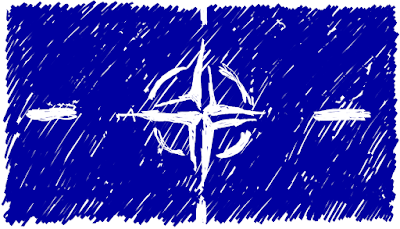In a previous post, I stated that a hot war in the Global North is good news for the Global South, which will get a break from US-imposed and Western-encouraged violence.
The pause in the Western-backed regime change effort in Ethiopia, diluting and hijacking the cause of people of Tigray as a proxy force, has held. A truce, between the government in Addis Ababa and the Tigrayan rebels, has been successfully sustained, to the relief of millions of people.
Yemeni peace on the horizon
Another bombed and impoverished land, Yemen, also experienced relief as of the start of this month. Coinciding with the Ramadan ceasefire, the aged former president Abdrabbuh Mansur Hadi stepped down on 7 April, entirely removing the purpose of the US-backed Saudi military intervention into the country and further robbing the UN-recognised regime of credibility. This was inevitable from the day the bombs first exploded above the ears of that oppressed nation.
But Saudi Arabia need not be berated, nor should it necessarily feel any further wrath for its part in a grave crime. From the start, they were only doing the bidding of the United States. Also coinciding with the cessation of hostilities in long-suffering Yemen was the mockery of the United States President, for the first time, on Saudi television.
Preceding the developments in Yemen, was the refusal of both the Saudi and Emirati leaders to talk to the US President about oil. Therefore, much as predicted in an earlier post here, it may be Mohammed bin Salman himself who shall lead his country's revolution in the wake of a conclusion so unfavourable to the United States in Yemen.
The timing of the cooling off of the conflicts is aligned, spectacularly well, with the diversion of US attention to Europe. For a change, the Global South seems to be getting safer.
Is the "purveyor of violence" distracted?
Is a trend towards peaceful settlements and cooperation now growing internationally, prompted by the increased distraction of the United States and its allies by the conflict in Europe? Now that people with blue eyes and blonde hair are being killed, quite regrettably, might people with dark tones of skin now finally be given a break?
With a sufficient pause to rebuild themselves after a foreign-imposed war of intrigue, could nations regain their splendour, pride and dignity, such that they are the envy of others, and such that they are truly able to calculate what they were robbed of?
Could the partial withdrawal of evil from Africa and the Middle East be evidence of where it emanates? Could the successful ceasefires, when US interest is diverted away, be evidence that, as asserted once by Dr Martin Luther King Jr., the United States is “the greatest purveyor of violence in the world”? Could it be that rather than being confronted spontaneously by random villains such as Saddam Hussein or Vladimir Putin, the United States is itself the single concentration of world evil?
The common denominator in world conflicts is the United States. The United States is engaged in every conflict or has taken a side in some way, suggesting its own regime is the vile source from which violence, coercion and killing emanate.
Upon realising the above, will nations take steps to fortify themselves against the supreme international evil and prevent it from returning to desecrate their innocent land?






